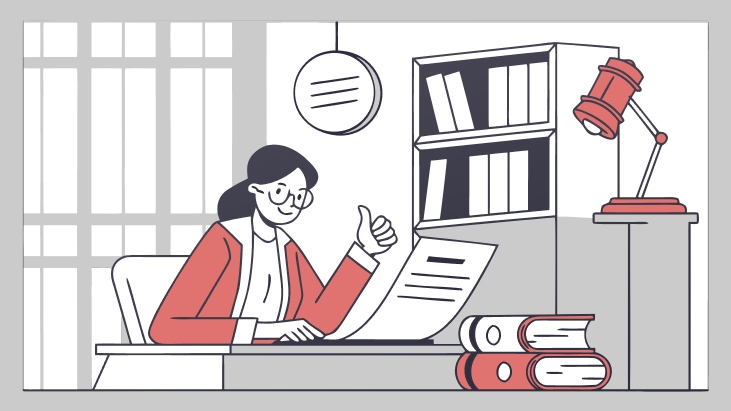Do All Condos Eventually Have Large "Special Assessments" After a Certain Age?
Sarah was excited about a well-priced condo in a 20-year-old building until her friend warned her that "all older condos eventually get hit with massive special assessments." She had heard stories about condos in Toronto facing millions in repairs, and a building in Kanata where owners were hit with a $600,000 special assessment for leaky sunrooms. Concerned about these potential financial burdens, she decided to investigate whether this common belief is actually true.
Understanding Condo Ownership and Maintenance
When you buy a condo, you're not just purchasing your unit - you're buying into shared ownership of the entire building. This includes everything from the roof and exterior walls to mechanical systems and common areas. The costs of maintaining these shared elements are typically covered through monthly maintenance fees and the building's reserve fund.
What is a Special Assessment?
A special assessment occurs when a condo corporation needs more money than what's available in the reserve fund to cover major repairs or replacements. Think of it like an unexpected tax bill - owners are required to pay their portion based on their unit's ownership percentage.
When a special assessment is levied, owners must pay their portion either as a lump sum or through an approved payment plan, and failure to pay can result in a lien being placed on their unit. Special assessments can significantly impact owners' finances, with recent cases in major Canadian cities ranging from $20,000 to over $100,000 per unit, and they can make it more difficult to sell your unit while the assessment is ongoing.
Why Do Special Assessments Happen?
Inadequate Reserve Fund Planning
Many buildings, especially those built during real estate booms, set initial maintenance fees too low to attract buyers. For example, a building might set fees at $0.45 per square foot when they should be closer to $0.65 to properly fund future repairs. A portion of the maintenance fees go towards a “reserve fund” that is intended to pay for big ticket repairs and maintenance items as the building ages.
Unexpected Issues
Sometimes problems arise that weren't anticipated in the reserve fund study. The Champlain Towers collapse in Florida (though in a different jurisdiction) highlighted how unexpected structural issues can emerge in older buildings.
Poor Initial Construction
The leaky condo crisis in Vancouver during the 1990s showed how construction quality issues can lead to massive repairs needed years later.
Avoid Special Assessment: Why a Condo Certificate Review is Crucial
A status certificate is a crucial legal document that provides a comprehensive snapshot of a condo's financial health, rules, and any potential issues, including information about the reserve fund, insurance, ongoing litigation, and special assessments.
When reviewing a status certificate, your real estate lawyer will analyze the building's financial statements, reserve fund adequacy, any upcoming major repairs, and legal issues to identify potential red flags that could affect your purchase decision or lead to future special assessments.
Red Flags in Status Certificates
When reviewing a building's status certificate, watch for:
- Multiple years of minimal fee increases
- Reserve fund balances that seem low for the building's size and age
- Notes about upcoming major repairs without clear funding plans
- History of special assessments
The Role of Reserve Fund Studies
Reserve fund studies are like a building's financial roadmap. They are usually conducted by engineering firms who inspect the building and create a plan for required repairs and maintenance items. A good study should:
- Project major repairs and replacements for the next 30 years
- Recommend appropriate funding levels
- Be updated every three years (ideally by a professional engineering firm)
- Account for inflation and contingencies
FAQs
Q: Are older buildings more likely to have special assessments?
A: Not necessarily. Well-maintained older buildings with proper reserve funds might be less likely to have special assessments than poorly managed newer buildings.
Q: What's a typical reserve fund contribution?
A: Generally, 25-35% of monthly maintenance fees should go to the reserve fund, though this varies by building age and condition.
Q: Can you negotiate who pays a special assessment when buying?
A: Yes, this can be negotiated as part of the purchase agreement. Your lawyer can help structure the agreement to protect you from announced or pending assessments.
How Deeded Can Help
At Deeded, our real estate lawyers have extensive experience reviewing condo documents and identifying potential financial risks. We help buyers by:
- Thoroughly reviewing status certificates and financial statements
- Analyzing reserve fund studies and maintenance histories
- Identifying patterns that might indicate future special assessments
- Explaining complex financial information in clear terms
- Structuring purchase agreements to protect against pending assessments
Making an Informed Decision
When considering a condo purchase:
1. Review the last three years of financial statements and board meeting minutes
2. Ask about the history of special assessments and major repairs
3. Compare maintenance fees to similar buildings in the area
4. Consider the building's age and construction quality
5. Look for evidence of regular maintenance and proactive management
Remember, while age alone doesn't determine special assessments, proper due diligence before purchasing is crucial. Working with experienced professionals who can evaluate a building's financial and physical health can help you avoid unpleasant surprises down the road.
The key to avoiding special assessments isn't necessarily buying new - it's buying smart. Look for buildings with proactive management, healthy reserve funds, and a history of addressing issues promptly rather than deferring maintenance.
Unlock Your Seamless Closing Experience
Your Journey to a Worry-Free Closing Starts Here!



